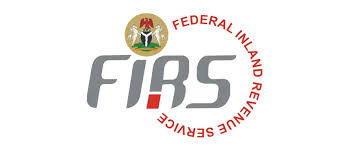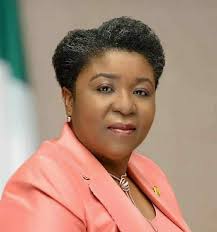News
Soot: Back RSG’s War Against Artisanal Refineries, Nsirim Urges NMA
Rivers State Commissioner for Information and Communications, Pastor Paulinus Nsirim has called on the Nigerian Medical Association (NMA) to collaborate with the government in the war against illegal bunkering and artisanal refineries in the state.
Nsirim made the call when the executive of the Nigerian Medical Association (NMA), Rivers State branch, paid him a courtesy visit in his office in Port Harcourt, last Monday.
He said the association should carry out aggressive campaign on the health implications of the operation of illegal bunkering and artisanal refineries which have been identified as the major source of soot menace in the state.
He said that the voice of NMA in this direction would help to strengthen the effort of government by making the people understand the health hazard they face on a daily basis.
“We employ the NMA to join the state government to sensitise the people on the various state-owned media platforms because we really need to take this fight seriously.
“We can’t afford to begin to have a generation of men and women who would have some chronic ailment that ordinarily they shouldn’t have, simply because a few individual who are benefiting from this illegal act are doing so at our own detriment”.
Nsirim said Governor Nyesom Wike had kept demonstrating that leadership prowess in all facets of life, and that has earned him the title of the new face of democracy in Nigeria.
“Governor Wike is somebody who understands the dynamics of governance. Just last week, we saw the verdict of the court concerning the Police Trust Fund.
“It is only somebody who really wants to make a mark and position leadership in a way that it will impact the people positively that will have time for such things.
“What we do today will impact on society tomorrow.So, all leaders must follow the footsteps of Governor Wike because leaving behind a worthy legacy is what will count after we leave office,” he said.
On the huge investment put into healthcare delivery by the Wike-led administration, Nsirim described the state governor as a man who has dedicated his life to cause a change in leadership, not just of the state but of the country.
“The investment Governor Wike is putting into healthcare delivery is not just for Rivers people but for the entire Nigeria. A lot of Nigerians will come here to access medical services because the facilities are top class and modern”.
He listed the Mother and Child Hospital, the Renal Hospital, Government House Clinic and the Dr. Peter Odili Cancer, Cardiovascular Disease Treatment Centre and Medical College of the Rivers State University as some of the huge investments of Governor Wike in the health sector.
“With the award of scholarship to Rivers indigenes studying medicine in the Medical College of the Rivers State University and their counterparts in Pamo University, Rivers State is gradually transforming to a state that will export medical manpower like other nations. This is highly commendable.
“We need to support this visionary leader as he goes ahead to set these things for posterity, because the truth of the matter is, a lot of people are dying today because the facilities are not there,” he said.
Nsirim noted that the massive health infrastructure put in place by the Wike’s administration would make healthcare delivery not just accessible but affordable, adding that accessibility and affordability are the major ingredients that will make the average person to get treated and get medical attention when needed, “and this is what we are seeing under Governor Wike.
“As Rivers people we should be grateful to Governor Wike for making Rivers State a hub of medical tourism in Nigeria. There is no state in the federation that has this kind of medical blueprint where you have all facets of healthcare delivery from training to education to facilities to infrastructure and getting it at top class level,” he said.
He assured the NMA of his ministry’s support to the forthcoming delegates’ conference of the association, urging the association to join in the #OurStateOurResponsibilty campaign aimed at changing negative narratives about the state.
He thanked the NMA for offering to carry out free medical services to help staff of the ministry know their health status in order to avoid sudden deaths.
“We have every reason to change the narrative about Rivers State because Governor Wike is showing the way of purposeful leadership in Nigeria,” he said.
The Chairman of the NMA, Rivers State Branch, Prof. Chizimdu Alikor, commended the commissioner for the visibility given to the developmental strides of the governor, particularly in the health sector.
He said the purpose of the visit was to solicit the collaboration of the ministry in the hosting of the National Conference cum Delegates’ Meeting of the NMA scheduled for May, 2022, in Port Harcourt.
Alikor opined that the conference would further open up Wike’s developmental strides in the health sector to the over 5,000 medical doctors that are expected to attend the conference.
He intimated the commissioner of his association’s plans to conduct a basic minimum medical care to the staff of the ministry.
By: John Bibor
News
Learn How To Form Coalition Party From Tinubu, Sowunmi Tells Atiku

Spokesman to former Vice President Atiku Abubakar, and chieftain of the People’s Democratic Party (PDP), Mr Segun Sowunmi, has advised his principal, Atiku, to learn from President Bola Tinubu on how to form a coalition.
The Tide reports that in a bid to wrest power from President Tinubu in 2027, Atiku has been leading the movement by opposition politicians to form a coalition of political parties ahead of the next general election.
Last month, opposition politicians set up a team comprising former Minister of Transpiration, Rotimi Amaechi, and former Governor of Cross River State, Liyel Imoke, to decide whether to float a new party or fuse into an existing platform.
While the main opposition party, PDP, struggles with a perennial leadership crisis, the former Vice President is bent on establishing another political force to take power from the ruling party in 2027.
But Sowunmi, who has been Atiku’s ally for many years, disagrees with his move, saying instead of forming a coalition with another political platform, he should coalesce opposition politicians into the PDP.
Speaking during an interview on TVC on Tuesday, Sowunmi, who was Atiku’s campaign spokesperson in the last election, asked his principal to learn from President Tinubu on how to form a coalition.
Sowunmi believes Atiku, having benefitted from the PDP as a former Vice President and getting the party’s presidential ticket twice, should not seek to form a coalition that will not have the PDP as its base.
He said, “I’ve always said to people, people love with their hearts. I love atiku with my bones. But I can’t help him against himself. You can’t run vice presidency on PDP two times with Obasanjo, get presidential candidate on that same party two times. I don’t agree with him that the next best thing is to be shopping for…(a platform) If you want a coalition, why are you not coalescing them into your party?” he asked.
The former PDP governorship candidate in Ogun State advised the ex-VP to learn from Tinubu on how to build a coalition without dumping his political party.
“Look at your rival, your friend. You guys started together. At best, even if you want to say he’s building a coalition is he not coalescing opponents into his place”? Sowunmi asked again.
The PDP chieftain, who recently showered praises on Tinubu after he visited him, said the President has an “uncanny ability to make everybody individually feel special” regardless of political affiliations.
His words: “That guy (Tinubu) is something oh, he has this uncanny ability to make everybody individually feel special. It doesn’t matter whether you are a former foe or a president’s friend, every moment you share with him, I don’t know how he does it, though you’re going to leave the place feeling that you matter, feeling that he gets it, feeling that what you guys are talking about is important. And there’s something about him, when he gives you his word, he will say something like ‘ko le ye’, meaning that to the best of human ability, it will stand.”
Meanwhile, there have been conversations about Sowunmi’s political stance as many questioned his relationship with Atiku, with whom he shares a longstanding political relationship.
Asked about his relationship with Atiku following his meeting with Tinubu, Sowunmi said he doesn’t know if the former Vice President is upset.
“I don’t know whether Atiku is upset or not upset, but I know a lot of our followers are talking a lot of nonsense, and I’m wondering how I became attached to Atiku when I’ve been in PDP since 1999 never leaving,” he responded.
News
FIRS Introduces New SOP To End Tax Confusion Nationwide

The Federal Inland Revenue Service (FIRS) has introduced a new Standard Operating Procedure (SOP) to fix inconsistencies in tax services across its over 300 offices nationwide.
The move aims to make tax processes clearer, more transparent, and easier for Nigerians.
In a statement, Special Adviser on Communications and Advocacy to the FIRS Executive Chairman, Mr. Collins Omokaro, said the updated SOP is a key part of the agency’s plan to improve taxpayer experience.
He explained that, in the past, different FIRS offices used different methods, which often confused taxpayers.
“This is about people, experience, and impact. It’s a step towards a tax system that supports voluntary compliance and national development,” Omokaro said.
The new SOP provides a single guide for key processes like registration, payment, audit, and enforcement. This will ensure all FIRS offices follow the same steps, making the system fairer and more predictable.
FIRS Executive Chairman, Dr. Zacch Adedeji, described the SOP as more than just a set of rules.
“This SOP is not just a technical document; it is a declaration of who we are becoming as a service. It reflects our commitment to transparency and service to the Nigerian people,” he said.
The SOP also supports FIRS’s digital transformation, combining human and technological systems to deliver faster and more reliable services. It will also improve internal efficiency by providing clear guidance and better training for staff.
“With this rollout, every FIRS staff member has a clear mandate: study it, apply it, and embody it. That’s how we’ll earn the trust of Nigerians,” Omokaro added.
The reform is part of FIRS’s efforts to become a more service-driven organisation, focused on clarity, consistency, and national growth. The agency hopes the new SOP will make tax services better for Nigerians and increase public trust in the system.
News
FG Working Towards World-Class Public Service -Walson-Jack

The Head of the Civil Service of the Federation (HCSF), Mrs Didi Walson-Jack, says the Federal Government is committed to building a world-class public service in Nigeria.
Walson-Jack made this known in Abuja, on Wednesday, at a World Press Conference ahead of the International Civil Service Conference and the African Public Service Week scheduled for June 25 to 26 in Abuja.
She said a recent study tour to Singapore was part of preparatory activities aimed at positioning Nigeria’s civil service for excellence and attracting global participation in the upcoming events.
“The study tour to Singapore was the first major activity we undertook under the collaboration between the Office of the Head of Civil Service of the Federation and the Heads of Service of the 36 states and the FCT,” she said.
According to her, the visit, supported by the United Nations Development Programme (UNDP), involved 20 State Heads of Service and was designed to benchmark best global practices and enhance Nigeria’s public service delivery.
“The idea was born out of our ongoing collaboration, where we share ideas and knowledge across federal and state levels.
“Singapore was chosen because it is globally recognised for excellence in public service,” she explained.
Walson-Jack noted that the second phase of the tour will involve the remaining 17 heads of service later this year.
She said the tour provided participants with the opportunity to engage with both public and private sector institutions in Singapore, compare administrative practices, and gain insights into global standards.
“It was an eye-opener and a capacity-building opportunity.
“Since our return, several state civil services have begun implementing reforms in collaboration with the federal service, particularly in areas such as capability development and digital transformation,” she added.
Walson-Jack further disclosed that Nigeria would host a reciprocal study tour during the upcoming African Public Service Week, where foreign delegates will engage with various federal institutions.
“They will see firsthand our digitalisation efforts, performance management systems, and other reform initiatives aimed at transforming our civil service.
“We hope the experience will inspire similar actions in their home countries,” she said.
-
Business4 days ago
Customs Gives Jet Owners One Month To Clear Debt
-

 News4 days ago
News4 days agoLearn How To Form Coalition Party From Tinubu, Sowunmi Tells Atiku
-
Nation4 days ago
WED: HYPREP Moves To Combat Plastic Pollution …Sensitises Ex-Artesenal Refiners
-
Women4 days ago
Women In Rivers’ Politics, Democracy
-

 Sports4 days ago
Sports4 days agoConcacaf Opposes 64-Team W’Cup Plans
-
Politics4 days ago
Democracy Day: Monarch Calls For Unity, Vigilance
-

 News4 days ago
News4 days agoNiMET Forecasts Three-Day Thunderstorms, Rain In Rivers, Edo, Others
-
Business4 days ago
Ogbe Gets Appo Board Appointment

